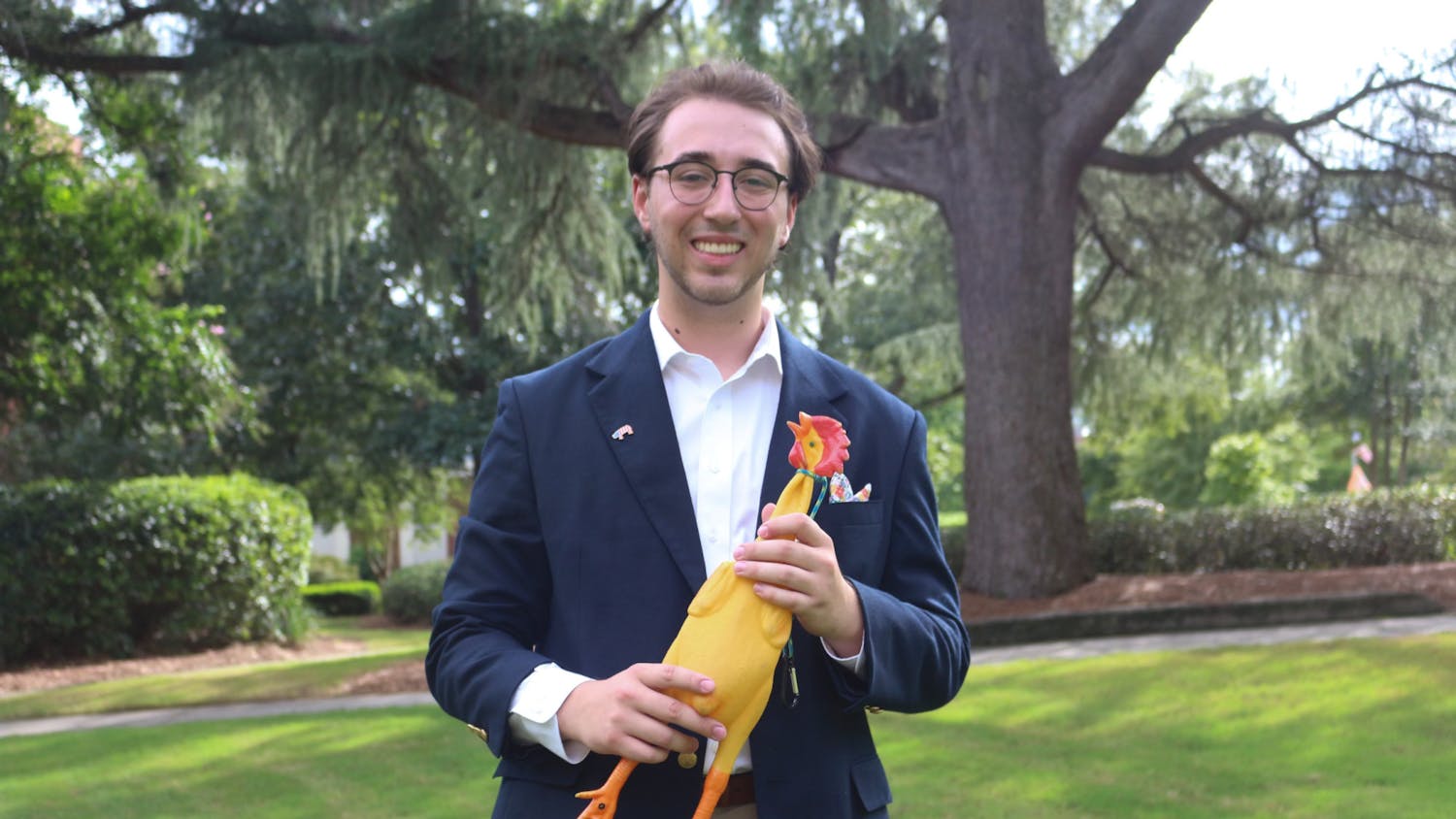Says Oni, “I do not want to dwell too much on the negatives or the past.”
This is a pretty incredible statement, given Mr. Oni’s experiences. Mr. Oni’s college roommate, Dr. Don Baxter, tells humorous stories of their time living together, but he also has some more sobering words to share.
For example, he describes his cherished memory of meeting Martin Luther King, Jr., when he was seventeen years old. He then tells us that the church in which he met King was a segregated “white” church; it had separate bathrooms and water fountains labeled either “white” or “colored”—a rather elaborate precaution, given that Baxter also tells us black people would not have been allowed inside the church’s sanctuary.
When it is his turn at the podium, Mr. Oni says to us: “We take so much for granted, don’t we?” He repeats himself a couple of times. It is well worth emphasizing. After all, today, I did not consider until the speakers began addressing racial issues that I was seated between a black woman around my age and a “non-white,” perhaps Hispanic, male around my age in Willingham.
Looking around me intentionally, I saw diversity: sure, a few white blonde girls like myself, but they were not the majority, at least where I was sitting.
There were black students, Hispanic students, Asian students, Indian students. Mr. Oni says I should not look for these differentiations. He tells us that we should hope—and strive—for a world in which it is never important to note the color of someone’s skin.
As an ironic illustration, Oni holds up brightly colored poster board for us.
“Is there anyone ‘white’ in this room?” he demands, pointing out to us the sheer silliness of those color designations “white,” “black,” even “brown” and “yellow,” when taken literally.
It is just like a little boy told me my first day back at Motivating Youth this year, while inspecting my skin to see if it was, indeed, “white”: “Miss Wiley, you look exactly like a peach!” So maybe “peach” is a more accurate color designation, but Mr. Oni is on to something. Why does “color” have to matter? Oni says it shouldn’t have to.
Sitting in the audience listening to Baxter and Oni, I found myself feeling a certain amount of pride that—in spite of the predominance of white males sitting onstage—at least two of our democratically elected Student Government representatives are, in fact, gay.
I’m proud of that fact. It makes me hope for a world in which we are not particularly concerned with someone’s skin color, “gender” or sexuality. Perhaps there will come a time when women and minorities will be equally represented in the political sphere.
Perhaps, even in the South, a future can be imagined in which political futures are possible for openly gay candidates. I’m hopeful, and I think Mr. Oni would want me to be. His message left me thinking about the possibility that in the end, what proves stronger than hostility, ignorance and hatred is forgiveness.
Comments on this opinion can be sent to wileymk@gmail.com




